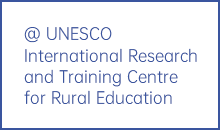Foreword
Access to a sustainable and quality education is one of the greatest challenges facing the world today and tomorrow. By working to ensure that every child can go to school and also that we can all continue to learn throughout our lives, our goal must be to give everyone the necessary skills to contribute to the development of their societies.
Education is at the heart of the goals that the international community set itself to achieve by 2030. This is why UNESCO is prioritising gender equality in and through education. The stakes are twofold: The education of girls and women is, first, a fundamental human right and it is also an essential lever for sustainable development and peace.
For a long time, this issue has been seen through a single prism, that of, achieving parity in schools, which was considered the criteria to measure the success or failure of efforts to integrate girls and young women into education systems. From this point of view, the last twenty years have witnessed a remarkable evolution.
But reality remains more complex: Disparities persist between countries, of course, but the fact today is that, even though some may enjoy greater access to education in parts of the world, gender inequality persists in education. Girls and young women continue to be discriminated against, especially with regard to the opportunities they are offered upon leaving school.
This is why this global Report stresses the need for broader thinking and action to achieve more than just gender parity in education, because, if access to education remains an absolutely vital issue for sustainable development, and we must continue to work to promote it especially when it is not achieved, we must also consider more than just parity in numbers.
To fully achieve gender equality in and through education, we must ensure that girls, once they enter school, remain in school and benefit from opportunities similar to those of boys in their educational journey and at the end of school. This includes making schools a place where gender stereotypes are deconstructed and fought. This is the ambition of the programmes supported by UNESCO to ensure that girls in school not only complete their studies, but also have access to study areas - especially science and technology - where they are still largely a minority.
This Report invites readers to explore all the factors that perpetuate gender inequalities in schools. It provides tools to enable governments to analyse the situation in their own countries and to develop strategies for change. For the first time, this Report also provides a study of national education plans, focusing on countries with the greatest gender disparities in education.
UNESCO stands ready to support governments in developing education policies and plans that support this real inclusion, and to work with all development partners whose major contribution this report highlights, to achieve real equality in our societies, as a necessary condition for development and peace.
Audrey Azoulay
Director-General of UNESCO













